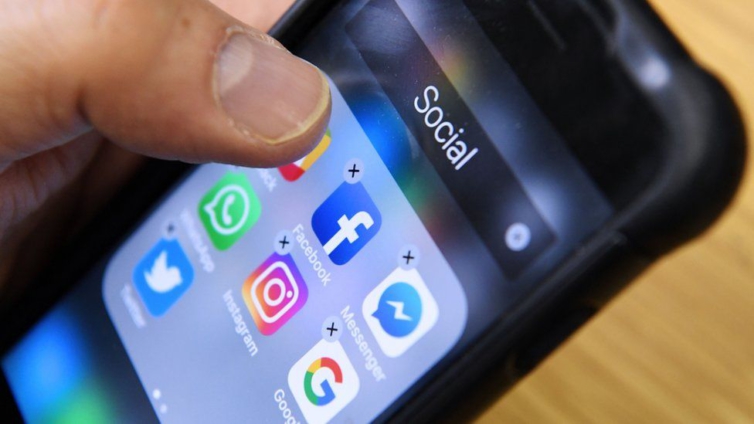Putting Toothpaste on Pimples: Does It Actually Work for Acne?
:max_bytes(150000):strip_icc():format(webp)/Health-GettyImages-ToothpasteOnAcne-4ea4cfedb2224b0fb601e61b59913d06.jpg)
Some people like to put toothpaste on their pimples because they believe it helps to shrink their size.
While some people think this practice is a quick fix for pimples, dermatologists may say otherwise.
Does Putting Toothpaste on Pimples Work?
While toothpaste may seem like an easy and cost-effective way to heal pimples, dermatologists don’t quite agree.
“Overall, the evidence of using toothpaste on acne is minimal and anecdotal,” Jacqueline Watchmaker, MD, a board-certified dermatologist based in Scottsdale, Arizona, told Health. “Toothpaste is not formulated for the skin and can sometimes cause skin irritation, especially toothpastes that contain whitening agents and fluoride.”
In fact, toothpaste can contain some ingredients that can dry out the skin, such as menthol and baking soda.
Some toothpaste contains an ingredient called triclosan, which has been found to have antibacterial properties that could potentially help acne. However, research has found the effectiveness of triclosan is limited and only reduces acne to a moderate degree. In fact, because it is an antibacterial agent, triclosan can lead to resistant strains of bacteria, which are bacteria that are not killed or controlled by antibiotics. Research shows that triclosan is generally less effective than other acne treatments and is therefore not recommended to treat acne.
It is better to optimize diet, lifestyle, skincare, medications, and procedures to create a comprehensive regimen that addresses the key underlying factors leading to acne.
Why You Shouldn’t Put Toothpaste on Pimples
Dermatologists don’t recommend putting toothpaste on pimples. Here are a few reasons why.
It Irritates and Dries Out the Skin
Certain ingredients in toothpaste, such as whitening agents (hydrogen peroxide), calcium, and baking soda, can irritate and dry out the skin.3
“This irritation can ultimately worsen acne, as it will make the oil glands in the skin have to work harder, which can lead to clogged pores,” John Barbieri, MD, MBA, an assistant professor at Harvard Medical School and the director of the Advanced Acne Therapeutics Clinic at Brigham and Women’s Hospital in Boston, told Health.
It Can Cause Inflammation
When applied to the skin, toothpaste can cause inflammation that can lead to other skin issues.
“The inflammation caused by toothpaste can also potentially result in long-term brown or white spots, or even scarring, so I do not recommend using toothpaste in any case on the skin,” Sara Moghaddam, MD, FAAD, a board-certified dermatologist based in Selbyville, Delaware, told Health.
It Can Cause Perioral Dermatitis
Fluoride in toothpaste has been linked to perioral dermatitis, a common rash around the mouth and nose that can resemble acne.
This condition can be difficult to treat and often requires oral prescription medication, said Moghaddam.
Alternative Treatments
To treat pimples and to keep them from getting worse, dermatologists recommend other acne treatments. These include:
- Hydrocolloid pimple patches: These patches work by absorbing excess fluid and reducing inflammation to help pimples heal.
- Salicylic acid: This ingredient unclogs pores and exfoliates skin to help treat and prevent acne.
- Benzoyl peroxide: Benzoyl peroxide kills acne-causing bacteria and is best used as a treatment for mild pimples.
- Azelaic acid: This ingredient can be used as a daily treatment to fade dark spots and prevent acne.
- Green tea extract: Green tea extract may help reduce sebum (oil) production and the number of pimple lesions.89
- Retinoids: Both over-the-counter and prescription retinoids, such as adapalene (over-the-counter) and tretinoin (prescription), can help treat pimples and other types of acne.
- Prescription acne medications: To treat recurring acne flare-ups, a topical prescription acne medication such as clindamycin or Aczone (dapsone) can be helpful.
- Stress reduction: Research shows that acne can result from a response to stress, which causes the body to produce more androgens. Androgens are hormones that stimulate the oil glands and hair follicles in the skin, which can lead to acne.
- Dietary changes: Some research suggests that reducing sugar and dairy may help reduce acne. However, further large-scale studies are needed to determine the association between diet and acne.
When To See a Dermatologist
If pimples don’t begin to clear with the use of over-the-counter acne treatments within four to six weeks, see a board-certified dermatologist or other healthcare provider.
Additionally, if your skin develops acne complications, such as scarring or dark spots (also called post-inflammatory hyperpigmentation) after the acne clears, visit a dermatologist. Dark spots are more common in darker skin tones and signal that acne is causing significant inflammation in the skin.
A Quick Review
Toothpaste is not an effective treatment or quick fix for treating pimples. In fact, it can make pimples and other types of acne worse.
Toothpaste can irritate and dry out the skin, which causes the skin to produce more oil. In turn, this clogs the pores and can potentially lead to more acne breakouts.
If you want to treat pimples, try other acne treatments that are more effective and less harsh on the skin. These include treatments such as retinoids, salicylic acid, azelaic acid, and benzoyl peroxide.
Source: health.com























































